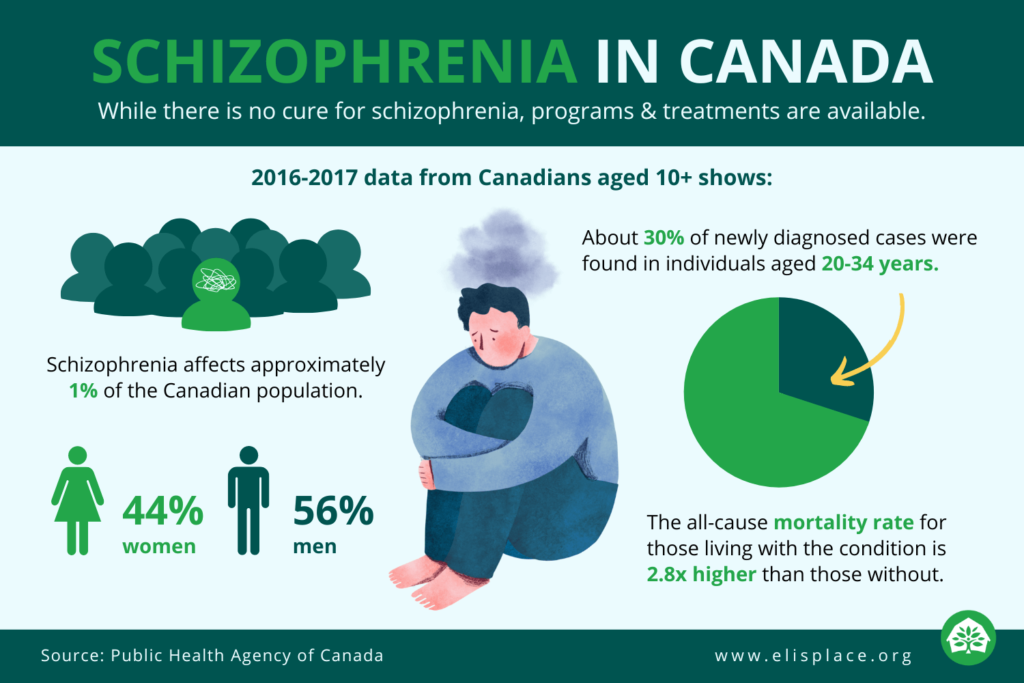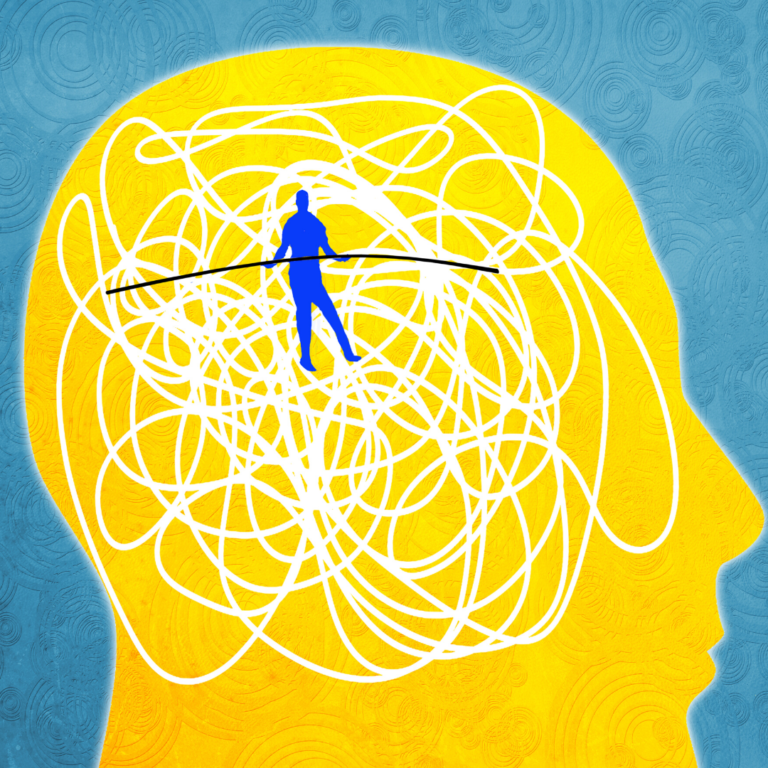As symptoms begin to emerge and form a pattern these signs are characterized as “episodes.” The sufferer may display irrational or aggressive behaviour seemingly out of the blue. They may also show more subtle signs of the illness like withdrawal from interests and peers, trouble sleeping, irritability, and poor grades. Since these symptoms are also common in major depressive disorder and general teenage angst, schizophrenia can easily go undiagnosed.

Symptoms of Schizophrenia
The symptoms are generally divided into “positive” and “negative” categories with a third category reserved for cognitive symptoms.
- Positive symptoms “add” to current human experiences. They might enable a person to have far more energy and perceived ability to complete activities and tasks. However, these so-called positive symptoms are also identified as psychosis as they add delusions and hallucinations to regular human experience often causing the individual to lose touch with reality.
- Negative symptoms “reduce” or impair regular activity and functioning. Often this might mean a reduction in energy and activity levels. For example, one’s range of emotions might be reduced resulting in brief, unengaged or disjointed speech. They might report a lack of enjoyment and pleasure or a lack of motivation.
- Cognitive symptoms are signs that cognitive functions, such as thinking, have been affected. They might struggle with memory, organizing thoughts, and even being aware that they have a mental illness.

How is Schizophrenia Diagnosed?
It is incredibly challenging to diagnose schizophrenia. There are no brain scans or blood tests that can detect it, and many of the symptoms overlap with other physical and mental illnesses. Doctors often must rule out many other illnesses before coming to the diagnosis of schizophrenia.
The Diagnostic and Statistical Manual of Mental Disorders (DSM) 5 suggests that if two or more of the above symptoms are present, the individual can be diagnosed. However, symptoms of hallucination and delusions can be enough to diagnose it on their own.

Common Stereotypes Around Schizophrenia
Like other mental illnesses, there is an intense negative stigma surrounding schizophrenia which can cause those suffering from it not to seek help. Some of the myths surrounding this illness suggest that those diagnosed hear voices, are violent and dangerous or have “multiple personalities”.
The Schizophrenia Society of Canada has an excellent resource on the various myths and stereotypes surrounding this illness. Check it out here.

Treatment Options
Although there is no cure, there are various treatment methods and management strategies that can help those diagnosed with the illness live full lives. They often require a blend of different treatment methods including medication, consistent medical care, peer support, and cognitive behaviour therapy (CBT).
It’s also common for those suffering from schizophrenia to be diagnosed with comorbidities, meaning they may also be experiencing other disorders along with the primary diagnosis of schizophrenia. For example, 25 percent of individuals living with schizophrenia also have a substance abuse disorder which requires its own unique treatment methods.
The Schizophrenia Society of Canada is a useful and enlightening resource for anyone looking for accurate information about schizophrenia and treating this mental illness.

Schizophrenia in Canada
Schizophrenia affects approximately 1% of the Canadian population, with 56% of those affected being men and 44% being women. Newly diagnosed cases are mostly found in individuals aged 20-34 years, accounting for around 34% of cases. Unfortunately, the all-cause mortality rate for those living with the condition is 2.8 times higher than for those without it.
Due to the severe and unpredictable symptoms and psychosis associated with schizophrenia, the stigma surrounding this mental illness is particularly pronounced. Unlike other conditions such as depression or eating disorders, there is no well-known advocate or spokesperson for individuals and families affected by schizophrenia.

Eli’s Place will be a rural, residential treatment program for young adults with serious mental illness. To learn more about our mission and our proven-effective model click here.




